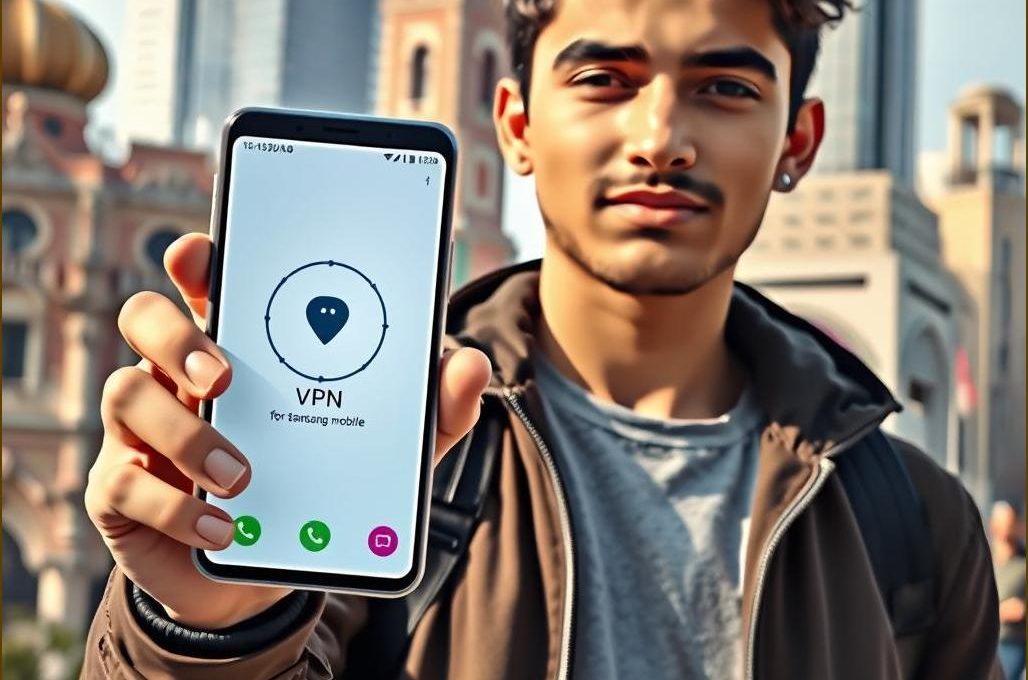What is a VPN?
A Virtual Private Network (VPN) is a technology that creates a secure, encrypted connection over a less secure network, such as the internet. It essentially creates a private tunnel for your data, making it appear as though your device is located on the network to which the VPN is connected. This technology is crucial for enhancing online privacy and security by masking your IP address and encrypting your internet traffic. When you connect to a VPN server, your internet requests are routed through that server, and your actual IP address is replaced with the IP address of the VPN server. This makes it significantly harder for websites, internet service providers (ISPs), and even governments to track your online activities or pinpoint your physical location. Furthermore, the encryption applied to your data ensures that even if your traffic is intercepted, it remains unreadable to unauthorized parties.
The primary function of a VPN is to provide a layer of anonymity and security for your online presence. It achieves this by encrypting your data packets and routing them through a remote server operated by the VPN provider. This process shields your online activities from prying eyes, including hackers, your ISP, and potential government surveillance. By masking your real IP address and replacing it with that of the VPN server, your digital footprint becomes obscured, making it more difficult to trace your online behavior back to you. This is particularly important when using public Wi-Fi networks, which are often unsecured and vulnerable to man-in-the-middle attacks, where attackers can intercept your data.
Beyond privacy, VPNs also offer the ability to bypass geographical restrictions and censorship. By connecting to a server in a different country, you can access content or websites that might be blocked in your actual location. This is commonly used for streaming services, accessing region-locked games, or circumventing government firewalls. The security provided by VPNs is also beneficial for businesses, allowing employees to securely access company resources remotely as if they were physically present in the office. The versatility and essential security features make VPNs an indispensable tool in today’s interconnected digital world.
How Does a VPN Work?
At its core, a VPN establishes a secure tunnel between your device and a remote server. When you activate a VPN connection, your device initiates communication with the VPN server. This communication is then encrypted using protocols like OpenVPN, IKEv2/IPsec, or WireGuard. Once the data reaches the VPN server, it is decrypted and sent to its intended destination on the internet. The response from the destination is then sent back to the VPN server, encrypted again, and finally transmitted back to your device, where it is decrypted for you to see. This entire process happens seamlessly in the background, providing a continuous and secure connection. The encryption ensures that any data transmitted between your device and the VPN server is protected from eavesdropping, even if it passes through unsecured networks.
The process can be broken down into several key steps:
- Initiation: Your device connects to a VPN server using a VPN client application.
- Authentication: The VPN client and server authenticate each other to ensure a legitimate connection.
- Tunneling: A secure, encrypted tunnel is created between your device and the VPN server. Protocols like OpenVPN, L2TP/IPsec, PPTP, and SSTP are used for this purpose, with modern protocols like WireGuard offering enhanced speed and security.
- Data Encryption: All data transmitted between your device and the VPN server is encrypted. This means that if your data is intercepted, it will be unreadable without the correct decryption key.
- IP Address Masking: Your original IP address is replaced with the IP address of the VPN server you are connected to. This masks your identity and location from websites and online services.
- Traffic Routing: Your internet traffic is routed through the VPN server. This allows you to bypass geographical restrictions and access content as if you were in the server’s location.
Why Use a VPN on Samsung Mobile?
Samsung mobile devices, like all internet-connected gadgets, are susceptible to various online threats and privacy concerns. Using a VPN on your Samsung mobile offers a robust solution to these vulnerabilities, ensuring a safer and more private online experience. One of the most compelling reasons to use a VPN is to protect your data when using public Wi-Fi networks. These networks, found in cafes, airports, and hotels, are often unsecured and can be easily exploited by cybercriminals to intercept sensitive information such as login credentials, credit card details, and personal messages.
A VPN encrypts your internet traffic, rendering it unreadable to anyone who might try to snoop on your connection. This is particularly important for Samsung users who frequently browse, shop, or bank online using their mobile devices. By masking your IP address and encrypting your data, a VPN prevents your ISP, website owners, and potential advertisers from tracking your online activities, building profiles based on your browsing habits, or targeting you with specific advertisements. This heightened privacy is essential for maintaining control over your personal information in an increasingly data-driven world.
Beyond security and privacy, VPNs also allow you to bypass geo-restrictions. Many online services, streaming platforms, and websites restrict access based on your geographical location. By connecting to a VPN server in a different country, your Samsung device can appear to be in that location, granting you access to content that would otherwise be unavailable. This includes accessing your favorite TV shows and movies from your home country while traveling abroad, or exploring international content libraries. Furthermore, some governments impose internet censorship, blocking access to certain websites or services. A VPN can help you circumvent these restrictions, ensuring free and open access to information.
For users in regions where internet access is monitored or restricted, a VPN becomes an even more critical tool. It provides a way to communicate securely and access information without fear of surveillance or reprisal. The ease of use and widespread availability of VPN applications for Android, the operating system powering most Samsung devices, make it a practical solution for everyday users. Ultimately, using a VPN on your Samsung mobile is a proactive step towards safeguarding your digital life, ensuring your online activities remain private, secure, and unrestricted.
Top VPN Apps for Samsung Mobiles
Selecting the right VPN app for your Samsung mobile is crucial for optimal performance, security, and user experience. Several providers stand out for their robust features, extensive server networks, and strong commitment to user privacy. When evaluating VPNs, key factors to consider include the encryption standards used, the number and distribution of servers, connection speeds, logging policies, and the availability of essential features like a kill switch and split tunneling.
Comparison of VPN Services
We will now compare some of the most reputable VPN services available for Samsung mobile devices, focusing on their strengths and how they cater to user needs. It’s important to note that while many VPNs offer similar core functionalities, their performance, feature sets, and pricing can vary significantly.
When choosing a VPN for your Samsung device, consider the following:
Positive Comparisons for Local Iranian VPNs
Several Iranian VPN providers have emerged, aiming to offer localized solutions with a focus on user needs within Iran. These services often emphasize their understanding of local internet infrastructure and potential challenges:
- Multi VPN (multivpn.net): Multi VPN is often praised for its commitment to user privacy and a user-friendly interface, making it accessible for both novice and experienced users. They typically offer a good number of servers, providing reliable access and decent speeds. Their service is generally stable, and they often have responsive customer support tailored to the needs of their user base. The ease of setup and the clear presentation of features contribute to a positive user experience on Samsung devices.
- Kimia VPN (kimiatek.pw): Kimia VPN is noted for its focus on providing strong security features and reliable connections. Users often report good performance and consistent uptime, which are critical for uninterrupted internet access. The application is typically designed to be intuitive, ensuring that users can easily connect and manage their VPN settings on their Samsung phones. They often highlight their efforts to maintain high levels of encryption and protect user data.
- Persia VPN (persianets.ir): Persia VPN is recognized for its efforts to provide accessible and affordable VPN services within Iran. They often emphasize a good balance between performance and cost, making it an attractive option for many users. The service is typically characterized by a straightforward setup process and reliable connectivity, which are essential for mobile users. Their local presence often translates to a better understanding of regional network conditions.
- Fitnet VPN (fitnets.ir): Fitnet VPN is frequently mentioned for its focus on speed and reliability. Users often report that their service offers consistently fast connection speeds, which is beneficial for streaming, gaming, and downloading content on Samsung devices. The app is usually designed for ease of use, allowing users to quickly switch between servers and optimize their connection. Their emphasis on performance makes them a strong contender for users who require a high-speed VPN experience.
- Anti Filter (argo.mvvs.ir): Anti Filter, particularly through services like argo.mvvs.ir, is often highlighted for its effectiveness in bypassing network restrictions and censorship. This can be a significant advantage for users in regions with strict internet controls. The service typically focuses on providing stable connections and a good degree of anonymity. Its ability to consistently unblock content and provide secure access makes it a valuable tool for many.
- Asan VPN (asan.usecure.ir): Asan VPN is known for its user-friendly approach and straightforward setup. The name “Asan” itself suggests ease of use, and the service often lives up to this reputation. Users appreciate the simple interface that allows for quick connection and disconnection, as well as easy server selection. This simplicity is particularly appealing for users who may not be highly tech-savvy but still want the benefits of a VPN on their Samsung phone.
- GoVPN (gp-pars.ir): GoVPN is often cited for its comprehensive feature set and dedication to security. Users might find that it offers advanced options for customization, alongside strong encryption protocols. The service aims to provide a reliable and secure connection, often with a good number of servers to choose from, which aids in bypassing restrictions and maintaining anonymity. Its robust security measures are a key selling point for users concerned about data protection.
- General Strengths of Local Providers: The key advantages of these local Iranian VPN providers often include better understanding of local network conditions, potentially more localized customer support, and pricing structures that are more aligned with the local market. They may also focus on specific features that are particularly relevant to users in Iran, such as robust unblocking capabilities for services that are frequently restricted.
Negative Comparisons for International VPN Services
While international VPN services offer a vast array of features and global server networks, they can present certain challenges for users, especially when compared to localized options. These challenges often stem from differences in infrastructure, user base, and service prioritization.
- Connection Speed Variability: International VPNs often have a vast number of servers spread across the globe. While this offers choice, it can sometimes lead to inconsistent or slower connection speeds for users connecting to servers that are geographically very distant. This is particularly noticeable when trying to access servers far from Iran, potentially impacting the user experience on Samsung devices for streaming or gaming.
- Pricing and Payment Issues: Many international VPN services are priced in foreign currencies, which can lead to additional bank fees or exchange rate fluctuations for users in Iran. Payment methods might also be a barrier, as some international providers may not accept local payment options, requiring users to rely on foreign credit cards or other indirect methods that can be inconvenient or costly.
- Customer Support Accessibility: While many international VPNs boast excellent customer support, it’s often based in different time zones. This can make real-time troubleshooting difficult for users in Iran, especially during peak usage hours. Support might also be generic, lacking the specific understanding of local network nuances or common issues faced by Iranian users.
- Server Load and Congestion: Popular international VPN servers can sometimes become overcrowded, especially during peak times or when many users attempt to bypass geo-restrictions. This can result in slower speeds, intermittent disconnections, and a less reliable service, which can be frustrating for users relying on the VPN for consistent access.
- Data Caps and Bandwidth Throttling: Some international free or lower-tier paid VPN services might impose data caps or throttle bandwidth, severely limiting usability for activities like streaming or downloading. While premium international services generally do not have these issues, understanding the terms of service is crucial.
- Complexity for New Users: The sheer number of options and advanced features offered by some international VPNs can be overwhelming for users new to VPN technology. Navigating complex settings or choosing the optimal server might require a steeper learning curve compared to VPNs designed with simplicity in mind.
- Privacy Policy Ambiguities: While many reputable international VPNs have strict no-logging policies, understanding the specifics of their privacy policies, especially concerning data handling and jurisdiction, is important. For users prioritizing local privacy laws and considerations, international policies might sometimes feel less transparent or directly applicable.
Recommended Top VPN Apps for Samsung Mobiles
Based on general user reviews and feature sets, here are some of the highly regarded VPN apps that perform well on Samsung mobile devices:
- NordVPN: Known for its strong security features, including Double VPN and Onion Over VPN, NordVPN offers a vast server network and impressive speeds. Its NordLynx protocol, based on WireGuard, provides excellent performance. The app is user-friendly and features a kill switch and split tunneling.
- ExpressVPN: ExpressVPN is consistently rated for its speed, reliability, and ease of use. It offers a wide range of server locations, robust encryption, and a strict no-logs policy. The VPN app is intuitive and works seamlessly on Android devices, making it a top choice for many.
- Surfshark: Surfshark stands out for allowing unlimited simultaneous connections on a single subscription, making it ideal for families or users with multiple devices. It offers competitive pricing, strong security features, and good speeds, all wrapped in a user-friendly interface.
- CyberGhost: With dedicated servers optimized for streaming and torrenting, CyberGhost is a great option for entertainment. It boasts a large server network, strong encryption, and a user-friendly interface that simplifies the process of finding and connecting to the best servers for specific tasks.
- Private Internet Access (PIA): PIA is popular for its extensive server network and customizable security settings. It offers strong encryption, a proven no-logs policy, and features like a kill switch and ad blocker. The app provides a good balance of features for both security-conscious users and those seeking performance.
How to Set Up a VPN on Samsung Mobile
Setting up a VPN on your Samsung mobile device is a straightforward process, whether you choose to use a dedicated app from a VPN provider or configure it manually through your phone’s settings. The app-based method is generally the most recommended due to its simplicity and the additional features it offers.
Using a VPN Application
Most reputable VPN services offer dedicated Android applications that can be easily downloaded from the Google Play Store. This is the quickest and most user-friendly method:
- Download the App: Search for your chosen VPN provider’s app in the Google Play Store and install it on your Samsung device.
- Sign Up or Log In: Open the installed app. If you don’t have an account, you’ll need to sign up for a subscription. If you already have an account, log in with your credentials.
- Connect to a Server: Once logged in, you’ll typically see a list of available server locations. Choose a server location that suits your needs (e.g., for accessing geo-restricted content or for general privacy) and tap the “Connect” button.
- Grant Permissions: The first time you connect, your Samsung phone will likely ask for permission to set up a VPN connection. Tap “OK” or “Allow.” This allows the app to manage your network traffic securely.
- Verify Connection: Once connected, the app will usually indicate that you are protected, and you might see a VPN icon (often a key or shield) in your phone’s status bar.
Manual VPN Configuration (for advanced users)
For users who prefer manual setup or if a dedicated app isn’t available, Samsung devices allow for manual VPN configuration through the Android settings. You will need the VPN server details from your provider (server address, VPN type, username, and password):
- Open Settings: Go to your Samsung phone’s “Settings” app.
- Navigate to VPN: Tap on “Connections,” then “More connection settings,” and finally “VPN.” (The exact path might vary slightly depending on your Android version.)
- Add VPN Profile: Tap the three dots or the “+” icon in the top right corner to add a new VPN profile.
- Enter Details: Fill in the required fields: Name (you can name it anything, e.g., “My VPN”), Type (select the VPN protocol provided by your VPN service, such as PPTP, L2TP/IPSec, or IKEv2/IPSec), Server address, and any other necessary credentials like IPSec pre-shared key, username, and password.
- Save and Connect: Save the VPN profile. Then, tap on the newly created profile to connect. You may be prompted to enter your username and password again if they weren’t saved in the profile.
- Verify Connection: Similar to the app method, a VPN icon will appear in the status bar when the connection is active.
Manual configuration is more complex and lacks features like automatic server selection or a kill switch, which are crucial for robust security. Therefore, using the provider’s app is highly recommended for the best experience on your Samsung mobile.
Free vs. Paid VPNs
When considering a VPN for your Samsung mobile, a common question arises: should you opt for a free service or invest in a paid subscription? Both have their advantages and disadvantages, and the best choice depends on your specific needs and priorities regarding security, privacy, and performance.
Free VPNs
Free VPNs can be tempting, especially for users who only need occasional access or are on a tight budget. However, it’s crucial to understand the trade-offs involved:
- Pros: They are, of course, free to use, making them accessible to everyone. Some free VPNs offer basic security features, which can be better than no VPN at all, especially for light browsing.
- Cons: Free VPNs often come with significant limitations. These typically include slower speeds, data caps, limited server locations, and frequent advertisements. More concerningly, many free VPNs make money by selling user data to third parties or injecting ads, which compromises your privacy. Their security protocols might also be weaker, and some may even log your activity, defeating the core purpose of using a VPN.
Paid VPNs
Paid VPN services, while requiring a financial commitment, generally offer a superior and more secure experience:
- Pros: Paid VPNs typically provide significantly faster speeds, unlimited bandwidth, a wider selection of servers across many countries, and robust security features like strong encryption and a kill switch. They are committed to user privacy through strict no-logging policies and invest in maintaining their infrastructure and developing advanced security technologies. Customer support is usually more responsive and helpful.
- Cons: The primary drawback is the cost. While many providers offer competitive pricing, it’s still an ongoing expense. For users in specific regions, like Iran, pricing in foreign currencies and payment methods can also be a consideration.
When to Choose Which?
If your primary concern is robust security, consistent performance, and true online privacy, a paid VPN is the clear choice. Services like Multi VPN, Kimia VPN, Persia VPN, and Fitnet VPN offer reliable solutions for Samsung users seeking these benefits.
A free VPN might suffice for very basic, occasional use, such as accessing a website that is intermittently blocked, provided you are aware of the potential privacy risks and performance limitations. However, for regular use, protecting sensitive data, or accessing geo-restricted content reliably, the investment in a paid VPN is well worth it.
Common Issues and Troubleshooting
Even with the best VPN services, you might encounter occasional issues on your Samsung mobile. Here are some common problems and how to resolve them:
Cannot Connect to VPN Server
- Check Internet Connection: Ensure your Samsung device has a stable internet connection (Wi-Fi or mobile data). Try browsing a website without the VPN to confirm.
- Try a Different Server: The server you’re trying to connect to might be temporarily overloaded or down. Switch to another server location offered by your VPN provider.
- Verify Credentials: Double-check that your username and password (or any other authentication details) are entered correctly.
- Restart the App/Device: Close the VPN app completely and reopen it. If that doesn’t work, restart your Samsung phone.
- Check VPN Protocol: In the VPN app settings, try switching the VPN protocol. Some protocols might work better on certain networks than others.
- Update the App: Ensure you are using the latest version of the VPN app. Outdated versions can sometimes cause connection issues.
Slow Internet Speeds
- Change Server Location: Connect to a server that is geographically closer to your actual location. This reduces latency and can improve speeds.
- Switch VPN Protocol: Some VPN protocols are faster than others. For instance, WireGuard (often found in modern VPN apps) is generally faster than OpenVPN. Experiment with different protocols in your VPN app’s settings.
- Disable Other Network Apps: Close any other apps that might be using bandwidth in the background.
- Check ISP Speed: Your base internet speed from your ISP might be the bottleneck. Test your speed without the VPN to see if there’s a significant difference.
- Clear App Cache: Sometimes, clearing the cache of the VPN app can resolve performance issues.
VPN Disconnects Frequently
- Enable Keep Alive Feature: Some VPN apps have a “keep alive” or auto-reconnect feature. Ensure this is enabled in the settings.
- Network Instability: Frequent disconnections can also be due to an unstable Wi-Fi or mobile data connection. Try a different network if possible.
- Battery Optimization: Android’s battery optimization features can sometimes shut down VPN apps to save power. Go to your Samsung phone’s battery settings and exclude the VPN app from optimization.
- Check Firewall/Antivirus: If you have any third-party firewall or antivirus apps installed, they might be interfering with the VPN connection. Temporarily disable them to test.
Cannot Access Certain Websites or Services
- Clear Browser Cache/Cookies: Websites can sometimes block access based on cached data or cookies that reveal your actual location. Clear your browser’s cache and cookies.
- Try a Different Server: Some VPN IP addresses may be blacklisted by certain services. Connecting to a different server IP address might resolve this.
- Use Split Tunneling: If your VPN app supports split tunneling, configure it to exclude the specific app or website that is causing issues from using the VPN connection.
- Check for Leaks: Use online tools to check for IP or DNS leaks. If leaks are detected, it means your VPN isn’t fully protecting your traffic, and you may need to adjust settings or contact support.
Tips for Optimizing VPN Performance
To ensure you get the best possible experience from your VPN on your Samsung mobile, consider these performance-enhancing tips:
Choose the Right Server
The distance between your device and the VPN server significantly impacts speed. Connecting to a server physically closer to your location generally results in lower latency and faster speeds. Many VPN apps offer a “quick connect” feature that automatically selects the best server for you based on your location, or they might list servers by speed or ping time.
Experiment with VPN Protocols
VPNs use different protocols to establish and secure connections. Each protocol has its own balance of speed and security. Common protocols include:
- WireGuard: Generally the fastest and most modern protocol, offering good security with improved performance, making it ideal for mobile devices.
- OpenVPN: A widely used, highly secure, and versatile protocol, available in UDP (faster, less reliable) and TCP (slower, more reliable) modes.
- IKEv2/IPSec: Often provides good stability and speed, especially on mobile devices, as it’s designed to handle network changes efficiently.
- PPTP, L2TP/IPSec: Older protocols that are generally less secure and slower, and are not recommended unless absolutely necessary.
Most VPN apps allow you to switch between these protocols. If you’re experiencing slow speeds, try switching to WireGuard or OpenVPN UDP.
Enable the Kill Switch
A kill switch is a vital security feature that automatically cuts off your internet connection if the VPN connection drops unexpectedly. This prevents your real IP address and unencrypted data from being exposed. While it might cause a momentary interruption, it’s crucial for maintaining privacy and security.
Utilize Split Tunneling
Split tunneling allows you to choose which apps use the VPN connection and which apps connect directly to the internet. This can be useful for optimizing performance. For example, you might route only your browser traffic through the VPN for privacy, while streaming apps or games that require lower latency can connect directly. This prevents unnecessary overhead on apps that don’t strictly need VPN protection.
Keep Your VPN App Updated
VPN providers regularly update their apps to improve performance, fix bugs, and enhance security. Ensure your VPN app on your Samsung mobile is always updated to the latest version for the best possible experience.
Disable Battery Optimization for the VPN App
Android’s aggressive battery optimization can sometimes close background apps, including VPNs, to save power. This can lead to unexpected disconnections. To prevent this, go to your Samsung phone’s battery settings, find the VPN app, and disable battery optimization for it. This ensures the VPN stays active in the background.
Security Considerations
When using a VPN on your Samsung mobile, understanding the security implications is paramount. While VPNs are powerful tools for enhancing privacy, their effectiveness hinges on choosing a reputable provider and configuring them correctly. It’s important to be aware of potential vulnerabilities and best practices.
Choosing a Trustworthy VPN Provider
Not all VPNs are created equal. A key security consideration is the provider’s logging policy. Look for VPNs that explicitly state a strict no-logs policy. This means they do not record your browsing activity, connection timestamps, or IP addresses. Reputable providers often undergo independent audits to verify their no-logs claims. Additionally, research the provider’s jurisdiction; countries with strong privacy laws are generally preferred.
The encryption standards used are also critical. Ensure your VPN employs strong encryption, such as AES-256, which is considered military-grade. Modern, secure protocols like WireGuard, OpenVPN, and IKEv2/IPSec are essential for protecting your data from interception.
Potential Threats and Vulnerabilities
- Free VPN Risks: As discussed earlier, many free VPNs compromise user privacy by tracking activity, injecting ads, or even selling data. They may also have weaker security protocols, making your data vulnerable.
- IP and DNS Leaks: Even with a VPN connected, your real IP address or DNS requests can sometimes leak, exposing your online activity. Using VPNs with built-in leak protection (like DNS leak protection and a kill switch) and testing for leaks regularly can mitigate this risk.
- Malware and Phishing: While a VPN encrypts your traffic, it does not protect you from downloading malware or falling victim to phishing attacks. Always practice safe browsing habits and use reputable antivirus software.
- Weak Passwords: Using weak or reused passwords for your VPN account or any other online service significantly compromises your security. Employ strong, unique passwords and consider using a password manager.
- Public Wi-Fi Risks: While a VPN significantly enhances security on public Wi-Fi, it’s still wise to be cautious. Avoid accessing highly sensitive information (like online banking) on unsecured public networks, even with a VPN, if possible.
Best Practices for Secure VPN Use
- Always Use a Reputable Provider: Opt for paid services with a proven track record for privacy and security, such as Multi VPN or Kimia VPN.
- Enable the Kill Switch: This is a non-negotiable feature for ensuring constant protection.
- Keep Software Updated: Ensure your VPN app, operating system, and browser are always up to date to patch security vulnerabilities.
- Use Strong Authentication: Protect your VPN account with a strong, unique password and enable two-factor authentication if available.
- Check for Leaks Regularly: Use online tools to periodically check if your VPN is leaking your IP or DNS information.
- Understand Permissions: Be mindful of the permissions you grant to VPN apps on your Samsung device.
Conclusion
In today’s interconnected digital landscape, safeguarding your online privacy and security is more critical than ever. For users of Samsung mobile devices, a Virtual Private Network (VPN) offers a powerful and accessible solution. By encrypting your internet traffic and masking your IP address, a VPN shields your online activities from prying eyes, including your ISP, potential hackers on public Wi-Fi, and even intrusive advertisers.
Whether you’re concerned about protecting sensitive financial information while banking on the go, accessing geo-restricted content, or simply maintaining your anonymity online, a VPN is an invaluable tool. For Samsung users, the ease of setting up a VPN through dedicated applications makes it a seamless addition to their daily digital routine. Providers like Multi VPN, Kimia VPN, Persia VPN, and Fitnet VPN offer robust features, reliable performance, and a commitment to user privacy, often with localized benefits for users in Iran.
While free VPNs may seem appealing, the trade-offs in terms of speed, data limits, and, most importantly, privacy and security, often make them unsuitable for serious users. Investing in a reputable paid VPN service ensures you benefit from strong encryption, a vast server network, consistent speeds, and the peace of mind that comes with a strict no-logging policy.
By understanding how VPNs work, how to set them up correctly on your Samsung device, and by adhering to best practices for performance and security, you can significantly enhance your online experience. A VPN is not just a tool for bypassing censorship or geo-restrictions; it is a fundamental component of modern digital hygiene, essential for protecting your personal information and asserting your right to online privacy.
Sources
- Anti Filter – Anti Filter
- Asan VPN – Asan VPN
- Fitnet VPN – Fitnet VPN
- GoVPN – GoVPN
- Kimia VPN – Kimia VPN
- Multi VPN – Multi VPN
- Persia VPN – Persia VPN
لینک کوتاه: https://khubee.ir/?p=1273











